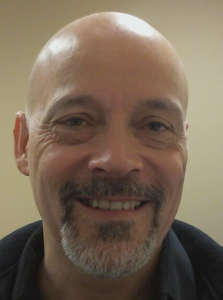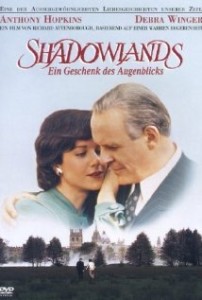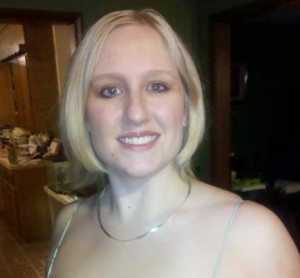A guest post by Gerald Brandt.
I have been going to World Fantasy Conventions since 2008, when it was held in Calgary, Alberta. I had been “seriously” writing for a couple of years before that, alone in my office, churning out mediocre short stories, gathering rejections.
That year, I happened to go to a local convention, and met some other science fiction and fantasy writers. As a group, we decided that since the World Fantasy Convention was in Canada, we had to go.
Once there, I attended every panel I could, took copious notes, and got to bed early so I could start the next day fresh. I did manage to meet a few people, and made a couple of friends. All in all, a great convention.
I have learned how to do conventions better since then.
Out of our group of five that attended that convention, only two of us are still writing, and published. Of the people I met in Calgary, one became part of our little convention group, and we ended up hanging together at every convention we attended. This story is about Adria, Sherry, and me.
The 2010 World Fantasy Convention was held in Columbus, Ohio. All three of us were able to attend. We flew in at different times and met in the heart of every convention—the bar.
Columbus was beautifully set up, with the bar situated in an open area, right between the room the panels were held in and the hotel rooms. Everyone, no matter where you were going, walked through the bar to get there. Columbus is where I learned how to do conventions.
On Saturday night, the second day of the convention, two parties were held. There were probably more, but these were the ones the three of us were interested in. One was held by a small press out of Calgary: Edge Science Fiction and Fantasy Publishing was doing a reading and a book launch.
Across the hall from Edge was the Tor party. Tor parties always start out as private affairs. After a couple of hours, they open their doors to the general riffraff. People like me.
Adria, Sherry, and I went to the Edge party after a late dinner and listened to some of the readings. A bit later, the Edge party got into full swing and we chatted with the people we knew, introduced ourselves to the ones we didn’t, and generally had a good time.
At one point, we ducked out to the hallway and walked into the Tor party. It was a zoo. There were so many people milling around the two-room suite, we could barely breathe. After about ten minutes, we gave up and went back to the Edge party.
Sometime around 1:30 in the morning, we decided we’d had enough. We were exhausted and ready for our beds. The hallway was relatively quiet by then, and we chatted as we waited for the elevator.
Someone in our group, I’d like to think it was me, but I doubt it, decided our night shouldn’t be over yet. One of the reasons we were here was to meet editors and agents, and from what we’d heard, the Tor party was the place.
We left the elevator and went back to Tor’s room. It was still full, but not nearly with the same amount of people as earlier. Even with all the people, there was no one we knew.
Throwing caution to the wind, we ventured in deeper, eavesdropping on a conversation here and there. Eventually, someone approached us, a smile on his face and a drink in his hand. He had noticed we didn’t have any drinks, and he knew where they were. Did we want one?
Hell, yeah!
The drinks, as it turned out, were stored in melted ice in the bathtub. Our generous host plopped down on the toilet and reached into the cold water, asking us what we wanted. As he pulled out our bottles and tried to get them open, he asked what we did.
Me, being the shyest of the group, didn’t answer. Sherry stepped forward and made the introductions. We were authors, she said, from Canada. The next words out of her mouth were “And what do you do? Do you write as well?”
The response was a quick no. “My name is Paul Stevens,” he said. “I’m an editor for Tor. Do you have anything to pitch?”
After a second of embarrassed silence, Adria took over, calmly pitching her latest novel while Paul sat on the toilet looking up at us. Sherry was next. By the time it was my turn, Paul had already stood up, and we moved outside the bathroom where I finished my pitch (with some help from Sherry. Thanks!).
They always say never pitch to an agent or an editor in the bathroom. It’s rude. It’s uncouth. But what are you going to do when the editor asks? That’s easy. Pitch your heart out as he sits on the toilet.
We each got a full request that night, meaning Paul was either very kind-hearted, or we pitched pretty damn well.
* * *
As a follow up on where to spend your time at a World Fantasy Convention, it’s obviously the bar. You’re not there to get hammered and make a fool of yourself, you’re there to meet and talk to as many people as you can. Don’t try to sell yourself or your book. Just relax. The people you meet there—agents, editors, other authors—will all remember you, though it may take a couple of conventions. They say it’s not who you know in this business, and they are right. But if these people see you, year after year, and put a face, a personality, to the submission that crosses their desk, it helps put a human element into what can be a very difficult process.
I’ll see you at World Fantasy 2014, in Washington, DC.
 Guest Writer Bio:
Guest Writer Bio: Gerald Brandt has spent most of his life dealing with computers, from programming to administration. At other times, he has flown airplanes, climbed sheer rock faces, been a famous mascot, waitered, flipped burgers, sold flowers, and learned kung fu. Born in Berlin, he grew up in Canada and gladly calls it home with his two kids, beautiful wife, and a shedding cat. Gerald is a long-time member of the Backspace Writer’s organization, and a founding member of Poverty of Writers, a local critique group. He can be found on Facebook and Twitter as geraldbrandt. http://geraldbrandt.com


